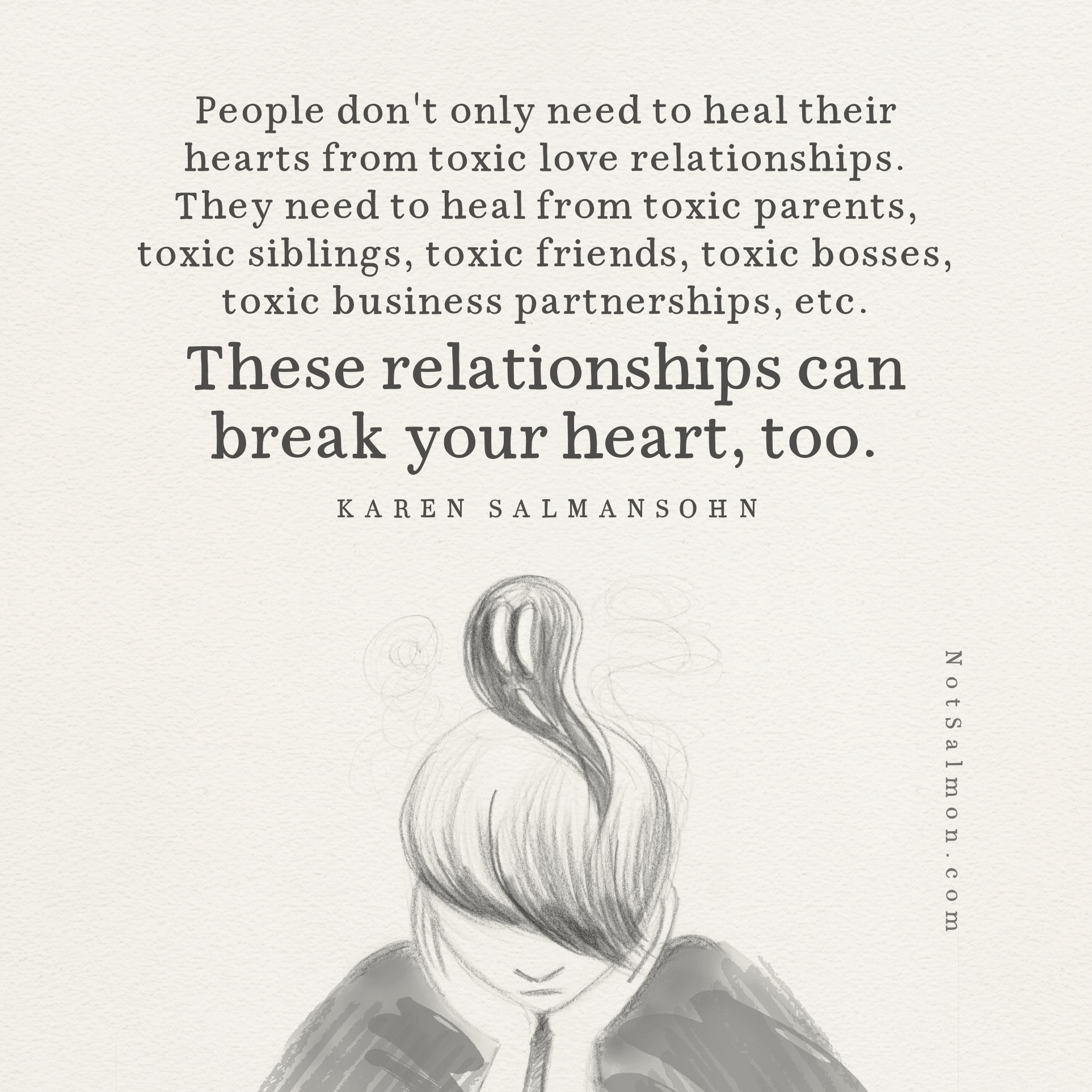 If you feel challenged by someone’s toxic behavior, you should learn these 3 types of narcissists so you can better recognize their narcissism and manage them.
If you feel challenged by someone’s toxic behavior, you should learn these 3 types of narcissists so you can better recognize their narcissism and manage them.
I’ve got bad news for all the narcissists out there!
I have been busy researching everything there is to know about narcissists – and I’m excited to share all my researched secrets to outsmart them!
- Inside this short article, I dive into the different types of narcissism: grandiose, vulnerable, and covert.
- Plus I share the key characteristics and behaviors associated with each type.
- And I offer practical tips on how to recognize and manage these trouble-making individuals.
- You deserve to enjoy healthy, empowering relationships… and this article will show you how to become a Narcissist Whisperer!
Quickie Reminder: It’s important to remember that not everyone who displays some of these traits (described below) is a full-blown narcissist. However, if you find yourself in a relationship or situation where someone consistently exhibits these behaviors, it’s important to take note and assess whether the behavior is harmful to you or others.
Did you know that there are 3 different types of narcissism?
I believe if you want to live a peaceful life, you need to learn how to better recognize the 3 types of narcissists!
If you’re not careful, all 3 types of narcissists can create problems in 4 areas:
1. work problems
Narcissistic colleagues, employees, clients and bosses are known for being uncooperative and inflexible. They’re constantly seeking attention and praise. And as a result they will often undermine others and try to take credit for others’ achievements.
2. friendship problems
Narcissistic friends can be manipulative and use others for their own gain. They may also become jealous or angry if their friends receive attention or recognition, and may constantly put their own needs ahead of their friends.
3. love relationship problems
Narcissistic love partners can be controlling and emotionally abusive, making their partners feel worthless and constantly questioning their own self-worth. They may also engage in infidelity and have difficulty with commitment and intimacy.
4. family relationship problems
Narcissistic family members can cause turmoil by disregarding the feelings and needs of others, creating a toxic and hostile environment. They may also engage in favoritism and struggle to understand the perspectives of their loved ones. This can lead to strained relationships and a lack of closeness and trust.
So, what can you do about these 3 narcissistic types and their toxic traits?
I’m here to help!
I’m sharing this article because I am a bestselling personal development author and mindset mastery influencer – with over 2 million books sold.
I’ve spent 2 decades researching how to manage & disarm narcissists – interviewing experts – reading piles of research – gathered from Trauma Recovery, Childhood Programming, Positive Psychology, Cognitive Behavioral Therapy, NLP, Boundary Mastery, The Art of Conflict Communication, etc…
This theme of “narcissists” is important to me because I’ve unfortunately had my heart broken by a narcissistic love partner. I share about this heartbreak in my bestselling online course Broken Heart Recovery.
Plus I’ve also been hurt by a few narcissists in non-romantic relationships – which I share about in my therapist recommended course Manage & Avoid Drama Llamas.
So, let’s get going!
First off, let’s define these 3 kinds of narcissisms.
3 Different Types of Narcissists Explained
Narcissism can manifest in different ways, and understanding the different types of narcissism is key to recognizing it in others and avoiding it in our own lives.
Type 1: Grandiose Narcissist
 This is the classic image of a charismatic and attention-seeking individual who always wants to be the center of attention.
This is the classic image of a charismatic and attention-seeking individual who always wants to be the center of attention.
Beneath their charming exterior, grandiose narcissists believe they are superior to others, have a sense of entitlement, and can be manipulative and abusive.
They use others for their own gain and often seek validation and praise. They also have a tendency to be manipulative and abusive.
(Note: I share the difference between self confidence and grandiose narcissism in this article.)
This Type of Grandiose Narcissist Might:
- Seek to dominate and control the relationship, insisting that their needs and desires are most important
- Make grandiose statements about their love and affection, but then ignore or belittle their partner’s feelings
- Refuse to compromise or work on the relationship, insisting that their partner must change to meet their needs
Type 2: Vulnerable Narcissist
This type of narcissism is less well-known but just as damaging. Vulnerable narcissists have a strong need for attention and validation, while also experiencing lots of insecurity and low self-esteem. They are hypersensitive to criticism and have a deep-seated fear of rejection. As a result, they quickly become defensive or hurt when they feel criticized. They often present themselves as victims and can be clingy and codependent in relationships. They are prone to mood swings and can lash out at others when they feel threatened.
This Type of Vulnerable Narcissist Might:
- Quickly become defensive or hurt if they feel criticized or if the relationship isn’t going their way
- Use emotional appeals to try to get their partner to give in to their demands or to make the relationship more about them
- Play the victim, insisting that they’re being unfairly treated or that the relationship is too difficult for them
Type 3: Covert Narcissist
This type of narcissism is often harder to detect as it is less overt. Covert narcissists can be passive-aggressive and manipulative. But they mask these offensive qualities behind a façade of unassuming humility and vulnerability. They often present themselves as victims or martyrs and use subtle tactics such as gaslighting to control and manipulate others. They’re usually incredibly charming and have a way of drawing people in, making them especially dangerous.
This Type of Covert Narcissist Might:
- Use subtle tactics, such as gaslighting or playing dumb, to try to control or manipulate the other person
- Refuse to take responsibility for their actions and try to blame any problems on others
- Use passive-aggressive behavior to assert their power and control in the relationship, without being openly confrontational.
So, how can we recognize these different types of narcissism in our lives?
4 Key Indicators of Narcissism:
1. Lack of Empathy

Covert, vulnerable, and grandiose narcissists all struggle with empathy, although they may express their lack of empathy in different ways.
Grandiose narcissists:
This type is the least empathetic of the three types. They’re consumed by their own sense of superiority and importance. They may view others as inferior and dismiss their feelings and needs, and they may have a callous disregard for the impact of their actions on others. Grandiose narcissists may also be quick to anger when their sense of superiority is challenged, further demonstrating their lack of empathy.
Vulnerable narcissists:
This narcissistic type also struggles with empathy. And their hypersensitivity to criticism or rejection makes it especially difficult for them to connect with others on an emotional level. They can wind up being so overly focused on their own needs and feelings, that they struggle to see the perspective of others, and often react with anger or defensiveness when their lack of empathy is pointed out.
Covert narcissists:
This type may appear to be empathetic on the surface, but their empathy is often superficial and self-serving. They may use feigned empathy to manipulate others or to maintain their image as a kind and caring person, but they struggle to truly understand and connect with others’ feelings.
2. Self-Centered & Self Important
All 3 types of narcissists have issues with being self centered about their needs.
Grandiose narcissists:
This narcissistic type believes they are better than others and so they put others down to make themselves feel superior. They’re always talking about themselves and their accomplishments. They have a strong need for admiration and attention and are quick to anger when their sense of superiority is challenged.
Vulnerable narcissists:
This type is self-centered in that they are preoccupied with their own needs, feelings, and self-image. As a result, this causes them to struggle to see other people’s perspectives. Plus they’re hypersensitive to any form of criticism or rejection. This sensitivity winds up leading them to be defensive and self-protective.So much so, vulnerable narcissists make it a habit to play the victim, make lots of excuses, and deflect all blame onto others.
Covert narcissists:
This type often lacks the overt arrogance and entitlement shown by grandiose narcissists. But they still have an underlying sense of superiority and a need for attention and recognition. They’re prone to envy and resentment and often use passive-aggressive techniques to try control people and uplift their self-esteem.
3. Manipulation
All 3 types of narcissists use manipulation to control their relationships.
Grandiose narcissists:
This narcissistic type manipulates people by using their charisma, confidence, and sense of superiority to control and dominate others. They use lots of flattery, charm, and charisma to win over others and gain their trust. As a result, their true self-interested intentions wind up being hidden behind a façade of warmth and likability.
Plus “love bombing” is a popular manipulation tactic used by grandiose narcissists to win over and control their love partners. It involves showering their target with excessive attention, affection, and flattery in the early stages of a relationship, thereby creating a quick sense of intense connection and intimacy. However, this intense love display is simply a tactic to help them to achieve their self-centered agenda.
Vulnerable narcissists:
This type may use tactics such as playing the victim, gaslighting, and emotional blackmail to gain sympathy and manipulate others into doing things their way. They may also use flattery and charm to win over others. But their true intentions are often hidden behind a façade of vulnerability and insecurity. Vulnerable narcissists may also engage in passive-aggressive behavior, such as sulking or withholding affection, to control and punish others who don’t meet their expectations. Plus they love to engage in self-deprecating behavior because they secretly struggle with feelings of shame and inadequacy.
Covert narcissists:
This narcissistic type often uses subtle and indirect forms of manipulation to control others and preserve their self-esteem. They may use tactics such as playing the martyr, being evasive or vague, and using sarcasm or irony to disorient and control others. They may also use guilt trips and emotional appeals to manipulate others into doing things their way, and they may engage in passive-aggressive behavior, such as sulking or withholding affection, to punish those who don’t meet their expectations. Covert narcissists are often skilled at disguising their true motives and can be difficult to detect, making them particularly effective manipulators.
How to Manage a Narcissistic Person?
1. Recognize, acknowledge and refuse their narcissistic behavior.
This can be difficult, especially if the person is a love partner, friend, family member, or co-worker. But it’s important to understand that their behavior is not your fault and that you are not responsible for their actions.
Grandiose narcissists:
With this type, it’s important to maintain a very confident and assertive demeanor. Do not let them intimidate or manipulate you. And do not engage in arguments or power struggles. Be straightforward and direct when communicating with them. State facts clearly. Do not be afraid to call them out on their behavior.
Vulnerable narcissists:
This type can be more challenging to deal with because they may become easily hurt or defensive. It’s important to approach them with whatever empathy you can muster. Try to avoid criticizing them, attacking them, playing into their insecurities or engaging in circular arguments with them.
Covert narcissists:
This type can be more subtle in their manipulation tactics, so it’s important to be aware of their behavior. Do not let them gaslight or manipulate you. And do not give in to their emotional appeals. Stand your ground. Do not be afraid to call them out on their behavior.
2. Set boundaries.
 You must learn how to speak up, how to limit your interactions, and when to avoid the toxic person altogether.
You must learn how to speak up, how to limit your interactions, and when to avoid the toxic person altogether.
Grandiose narcissist: Say something like this…
- “I appreciate your perspective, but I have my own boundaries that I need to maintain. Can we please respect that?”
- “I understand that you may not agree, but I need to set limits on this behavior. Please respect my boundaries.”
- “I need to prioritize my own well-being, so I’ll be limiting our interactions from now on.”
Vulnerable narcissist: Say something like this…
- “I understand that you’re feeling upset, but I need to maintain my own boundaries. Can we focus on finding a solution?”
- “I’m here to listen, but I won’t enable this behavior. Let’s find a way to move forward in a healthy way.”
- “I care about you, and I’ll still be here for you, but I need to take a step back and limit our interactions.”
Covert narcissist: Say something like this…
- “I won’t let you control or manipulate me. Let’s find a solution that works for both of us.”
- “I won’t engage in power struggles. Let’s work together to find a healthy solution for both of us.”
- “I appreciate your perspective, but I’m feeling a bit overwhelmed and stressed by our conversations, so I need to take a step back and limit our interactions.”
3. Work on your own self-worth and self-esteem.
Narcissistic individuals can be incredibly damaging. You need to protect your well-being and prioritize your mental and emotional health. It’s essential that you take time to heal whatever emotional wounds they might have caused and re-learn new healthier beliefs and more self-loving habits. With this in mind, I would love to be your Mindset Mastery Coach and help you to healthfully work through your experiences.
Conclusion: How To Recognize The 3 Types of Narcissism
Recognizing and understanding the different types of narcissism is crucial for protecting yourself from their toxic behavior and living a life with more inner peace and self-esteem.
Again – please remember that not everyone who displays some of these traits (described above) is a full-blown narcissist. However, if someone’s behavior is emotionally harmful to you, you should still put in the effort to protect yourself.
P.S. Before you zip off to your next Internet pit stop, check out these 2 game changers below - that could dramatically upscale your life.
1. Check Out My Book On Enjoying A Well-Lived Life: It’s called "Your To Die For Life: How to Maximize Joy and Minimize Regret Before Your Time Runs Out." Think of it as your life’s manual to cranking up the volume on joy, meaning, and connection. Learn more here.
2. Life Review Therapy - What if you could get a clear picture of where you are versus where you want to be, and find out exactly why you’re not there yet? That’s what Life Review Therapy is all about.. If you’re serious about transforming your life, let’s talk. Learn more HERE.
Think happier. Think calmer.
Think about subscribing for free weekly tools here.
No SPAM, ever! Read the Privacy Policy for more information.
One last step!
Please go to your inbox and click the confirmation link we just emailed you so you can start to get your free weekly NotSalmon Happiness Tools! Plus, you’ll immediately receive a chunklette of Karen’s bestselling Bounce Back Book!


 If you feel challenged by someone’s toxic behavior, you should learn these 3 types of narcissists so you can better recognize their narcissism and manage them.
If you feel challenged by someone’s toxic behavior, you should learn these 3 types of narcissists so you can better recognize their narcissism and manage them. This is the classic image of a charismatic and attention-seeking individual who always wants to be the center of attention.
This is the classic image of a charismatic and attention-seeking individual who always wants to be the center of attention.
 You must learn how to speak up, how to limit your interactions, and when to avoid the toxic person altogether.
You must learn how to speak up, how to limit your interactions, and when to avoid the toxic person altogether.